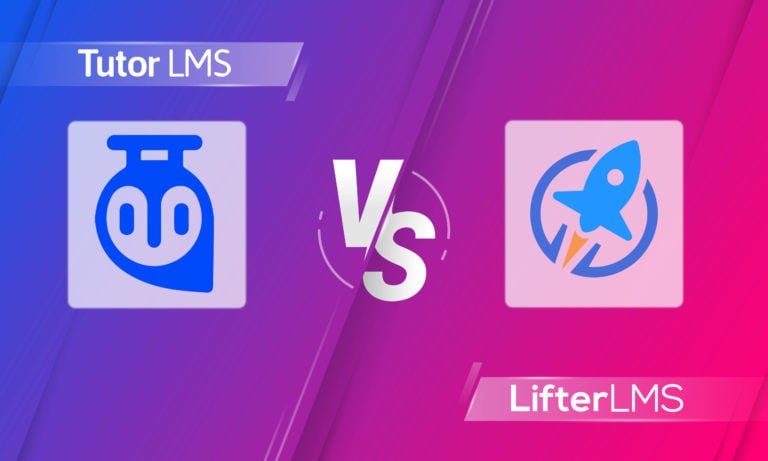Shopify is famous for online selling, and there’s a good reason. It’s used by over a million businesses in lots of countries. Whether you’re already using Shopify and want to explore different choices or you’re just starting to look into online selling options, we’ve got information that can help you out.
What Is Shopify?
Shopify is an e-commerce platform that helps people create and manage their online stores. It provides tools and features for various aspects of running an online business, including setting up a website, managing inventory, processing orders, handling payments, and more. Shopify is popular for its user-friendly interface and customizable design templates, making it accessible for individuals and businesses looking to sell products or services online. It also offers a range of apps and extensions to enhance the functionality of online stores.
Why Users Probably Looking for a Shopify Alternatives?
Here are some common reasons why people explore other options:
1. Cost Concerns
Shopify comes with a monthly subscription fee, and additional costs may arise from transaction fees and app purchases. If cost is a significant factor, you might seek a more budget-friendly solution.
2. Limited Customization
Shopify is user-friendly, but some users may find its design and customization options limiting. If you have specific design or functionality requirements that Shopify doesn’t fulfill, you may look for alternatives with more flexibility.
3. Complexity for Small Businesses
Some small businesses might find Shopify’s extensive features more complex than necessary for their needs. If you’re running a simpler operation, you might seek a platform that is easier to navigate and manage.
4. Integration Issues
Depending on your business requirements, you may encounter challenges with integrating certain third-party tools or services into Shopify. If seamless integration is crucial, you might explore alternatives that better meet your integration needs.
5. Transaction Fees
Shopify charges transaction fees for using external payment gateways, which can add up, especially for high-volume businesses. To minimize transaction costs, you may explore alternatives with different pricing structures.
Best Shopify Alternatives
Here are some alternatives to Shopify:
1. WooCommerce
WooCommerce is a powerful e-commerce plugin designed for WordPress, one of the most popular website platforms. Developed by Automattic, the company behind WordPress.com, WooCommerce enables users to turn their WordPress sites into fully functional online stores. It offers a user-friendly interface and extensive customization options, making it suitable for businesses of various sizes. With features like product management, secure payment processing, and a range of extensions, WooCommerce provides a flexible and scalable solution for those looking to establish an online presence and sell products or services.
2. BigCommerce
BigCommerce is a robust e-commerce platform that provides a comprehensive solution for building and managing online stores. As a hosted platform, BigCommerce takes care of aspects like hosting, security, and performance, allowing businesses to focus on growing their online presence. It caters to a wide range of businesses, from small startups to large enterprises, offering features such as customizable storefronts, secure payment processing, inventory management, and multi-channel selling capabilities. BigCommerce is known for its scalability, responsive themes, and a variety of built-in tools for marketing and analytics. It provides a user-friendly interface, making it accessible for both beginners and experienced e-commerce entrepreneurs.
3. Magento
Magento is a powerful and open-source e-commerce platform that provides a highly customizable solution for building online stores. Developed by Adobe, Magento offers a flexible and scalable framework, making it suitable for businesses of various sizes, from small startups to large enterprises. It allows users to create unique and feature-rich online stores with extensive customization options for design, functionality, and third-party integrations. Magento includes essential e-commerce features such as product management, secure payment processing, and advanced marketing tools. Its open-source nature means that developers can modify the code to meet specific business needs.
4. Weebly
Weebly is a user-friendly website builder that also includes e-commerce capabilities, making it an accessible choice for individuals and small businesses looking to establish an online presence. Acquired by Square in 2018, Weebly offers a drag-and-drop interface, allowing users to easily create and customize websites without requiring advanced technical skills. In addition to its website-building features, Weebly provides integrated e-commerce tools, enabling users to set up online stores, manage inventory, and process transactions. The platform includes responsive design templates, making websites mobile-friendly. Weebly is known for its simplicity, making it a suitable option for those who prioritize ease of use and quick setup for their online ventures.
5. Ecwid
Ecwid is an e-commerce platform that stands out for its flexibility and ease of integration. Designed to seamlessly integrate with existing websites, social media, and mobile apps, Ecwid allows businesses to add online stores to their digital presence effortlessly. It supports a wide range of industries and businesses of various sizes, offering features such as secure payment processing, inventory management, and customizable storefronts. With its focus on simplicity, Ecwid enables users to sell products and services without the need for complex coding or extensive technical knowledge. The platform’s versatility makes it an attractive choice for those seeking a hassle-free way to incorporate e-commerce into their online strategy.
6. PrestaShop
PrestaShop is an open-source e-commerce solution that empowers businesses to create and manage online stores. Known for its flexibility and extensive customization options, PrestaShop is suitable for businesses of different sizes. PrestaShop provides a range of features including product management, secure payment processing, and a variety of plugins and themes for enhanced functionality and design. With a user-friendly interface, PrestaShop caters to both beginners and experienced users, making it a popular choice for those seeking a customizable and scalable e-commerce solution without the constraints of a proprietary platform.
7. OpenCart
OpenCart is an open-source e-commerce platform that offers a user-friendly and customizable solution for creating online stores. With a focus on simplicity, OpenCart is suitable for businesses of various sizes, allowing users to set up and manage their online presence without extensive technical knowledge. The platform provides essential e-commerce features such as product management, secure payment processing, and order management. OpenCart supports a modular architecture, making it easy for users to add extensions and themes to enhance the functionality and appearance of their online stores.
8. Volusion
Volusion is an e-commerce platform that offers a comprehensive solution for businesses to create and manage online stores. With a user-friendly interface, Volusion is designed to cater to both beginners and experienced e-commerce entrepreneurs. It provides a range of features, including customizable storefronts, product management tools, secure payment processing, and built-in marketing features. Volusion also offers responsive design templates to ensure that online stores are optimized for various devices. The platform is a hosted solution, meaning it takes care of hosting and security, allowing businesses to focus on selling their products.
9. Sellfy
Sellfy is an e-commerce platform designed to make it easy for creators, entrepreneurs, and digital product sellers to monetize their work. It’s particularly popular among content creators, writers, musicians, and digital artists. Sellfy allows users to set up an online store quickly, where they can sell digital products such as e-books, music, videos, and artwork. The platform handles payment processing, and file delivery, and provides customizable store options. Sellfy also offers tools for marketing, including discount codes, email marketing, and integration with social media. Its simplicity and focus on digital products make it a convenient choice for individuals looking to sell their creations online without the complexity of managing physical inventory.
Final Thought On Shopify Alternatives
Choosing the right e-commerce platform depends on your specific needs, preferences, and the nature of your business. Shopify, WooCommerce, BigCommerce, Magento, Weebly, Ecwid, PrestaShop, OpenCart, Volusion, and Sellfy each have their unique features and strengths. Consider factors like your budget, technical expertise, customization requirements, and scalability when making a decision. Whether you prioritize ease of use, extensive customization, or specific integrations, there’s likely a platform that aligns with your goals. Take the time to explore and compare these options to find the one that best suits your business and sets you up for success in the world of online selling.
Interesting Reads:








